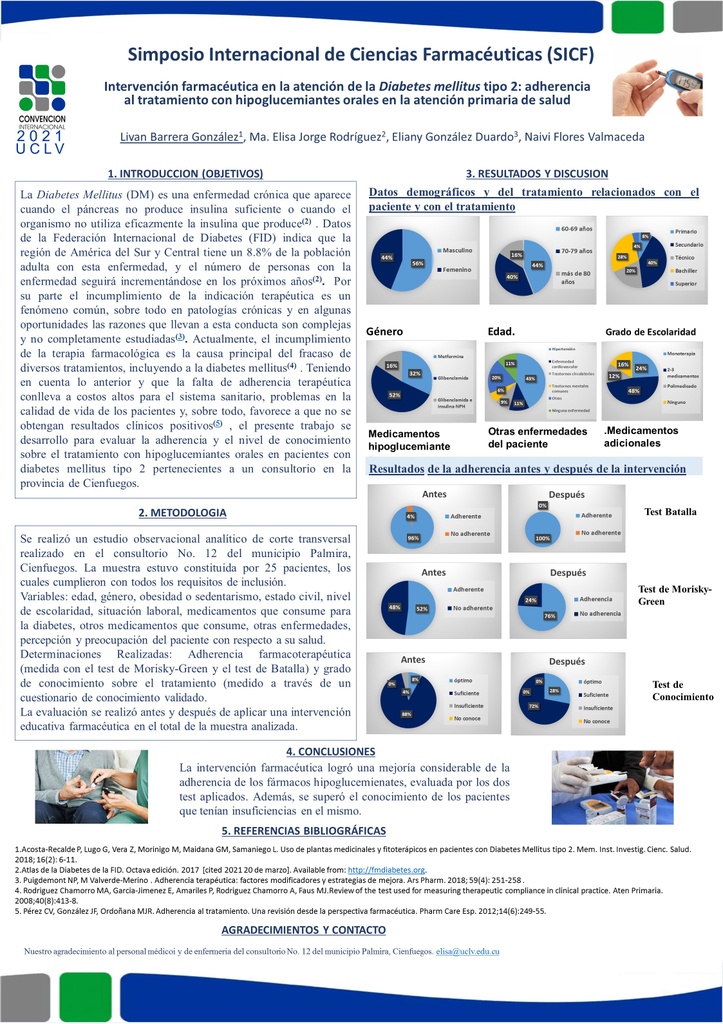Executive Secretary

Simposio Internacional de Ciencias Farmacéuticas
SICF

Resumen
El incumplimiento a la terapia farmacológica es una de las causas más importantes del fallo terapéutico en la mayoría de las enfermedades crónicas, conllevando a costos altos para el sistema sanitario y problemas en la calidad de vida de los pacientes. El objetivo de la presente investigación es evaluar la adherencia y el conocimiento sobre el tratamiento con hipoglucemiantes orales en pacientes con diabetes mellitus tipo 2 pertenecientes a un consultorio médico del municipio Palmira, Cienfuegos. Para ello se realizó un estudio observacional de corte transversal con 25 pacientes mayores de 60 años con diabetes mellitus tipo 2 que consumían metformina o glibenclamida; se aplicaron los test de Batalla y el de Morisky-Green para medir la adherencia y un cuestionario para determinar el nivel de conocimiento del paciente sobre su medicación. Antes de la intervención el porcentaje de adherencia en el test de Batalla fue 96% y en el test de Morisky-Green 52%, mientras que en el cuestionario de conocimiento se obtuvo 4% para conocimiento insuficiente, 88 % y 8% para conocimiento suficiente y óptimo respectivamente. Estas cifras tras la intervención farmacéutica se incrementaron a 100% para el test de Batalla, 76% para el de Morisky-Green y se obtuvo 28% de conocimiento óptimo y 72% de suficiente, demostrándose la efectividad de la intervención.
Abstract
Non-compliance with pharmacological therapy is one of the most important causes of therapeutic failure in most chronic diseases, what leads to high costs for the health system and problems in the quality of patient’s life. The objective of this research was to evaluate adherence and knowledge about treatment with oral hypoglycemic agents in patients with type 2 diabetes mellitus, which belonged to a medical office in the Palmira municipality, Cienfuegos. For this, an observational cross-sectional study was carried out with 25 patients older than 60 years, who consumed metformin or glibenclamide. The battle test and the Morisky-Green test were applied to measure adherence and a questionnaire to determine the level of knowledge of the patient about his medication. Before the intervention the percentage of adherence in the battle test was 96%, in the Morisky-Green test 52% and in the knowledge questionnaire 4% for insufficient knowledge, 88% and 8% for sufficient and optimal knowledge respectively. After the pharmaceutical intervention was obtained 100% for the battle test, 76% for the Morisky-Green test, 28% optimal knowledge and 72% sufficient knowledge, demonstrating the effectiveness of the pharmaceutical care-based intervention.
Sobre el ponente

Dra. María Elisa Jorge Rodríguez

